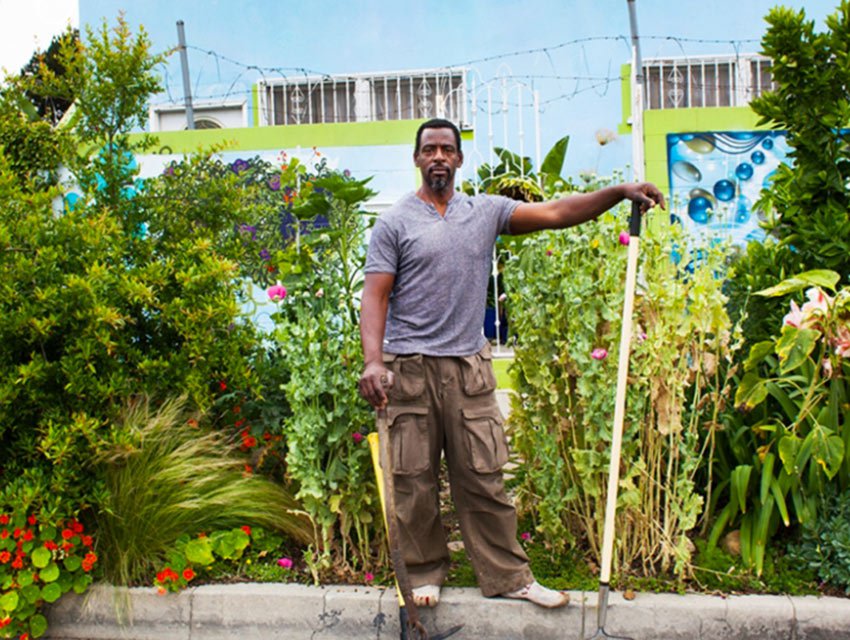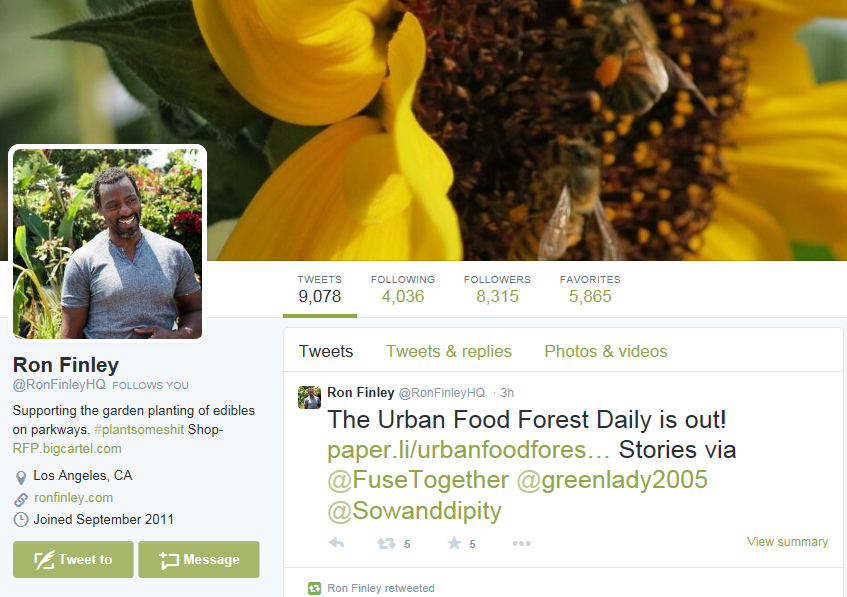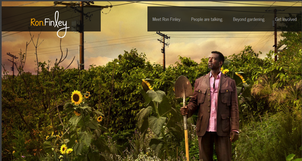The second largest city in the United States has officially legalized urban gardening. Nearly 4 million Los Angeles residents have now been activated and awakened to grow a new future away from abusive corporate food practices. In March of 2015, the Los Angeles city council passed an ordinance that allows residents to plant gardens in their parkways (that strip of city-owned land between the sidewalk and street.) This is a major victory and future trend as communities continue to decentralize their food supply and take back their power. For the people of the United States and the world at large, a peaceful revolution has started on our own terms and on our own soil. Recently, Gary Hooser made history by crashing Syngenta’s annual stockholder meeting to personally give the nearly 1000 pro-GMO shareholders in attendance the message:
“Do not spray chemicals in my community that you cannot spray in your community.”
It all started with Ron Finley’s revolutionary non-violent act of urban gardening. Describing the tipping point that motivated him to act, Finley states in his most recent interview:
“You just look around and all of the sudden you realize all you see is asphalt and concrete. My whole thing is, I don’t want my food local, I want my food hyper-local. Why in this desert we live in (in California), why are we watering grass when you can use less water and grow food? It started (his first illegal garden) as a beautification of my block and my neighborhood. I wanted to be kissed by hummingbirds every day. I wanted to see butterflies. I wanted to smell lavender and jasmine and rosemary.”
Finley is looked upon as an icon in the gardening community as well as in the activist community for his defiance and TED Talk with over 2 million views recounting the experience along with his philosophy. After Finley illegally planted a small food forest on the city’s 150 x 10 food community parkway, he was fined. After repeating the offense the legal system aimed to make an example out of him. This was a mistake that backfired monumentally as Finley is now revered around the world as a symbol of gardening revolution. Carrying a business card reading “Head Trouble Maker” as the job title, Finley sums up what he does in a simple statement “I change culture.”
With the current California water shortages being amplified by corporate bottling companies and fracking waste water, Los Angeles urban gardening will act as a win-win for residents. According to Finley, it won’t stop there:
“Yeah the parkways are cool if you put them together, that’s acres and acres and acres of space. But I want some of these vacant lots. I want people to be able to walk outside of their house and be able to engage with their community. Gardens build community, period. People ask me what I do and I’m like “I change culture”, that’s what I do. That’s what we have to do; we have to get back to being self-sufficient. People ask me why I call it gangster; this is gangster. You wanna know what true gangster is, it’s being self-sufficient. It’s building your community; it’s not tearing it down. It’s educating, it’s helping people.
To those looking for a place to start changing the world in their own way or to follow Finley’s lead and be a local revolutionary gardener, apply the quote by Arthur Ashe:
“Start where you are. Use what you have. Do what you can.”
“Do not spray chemicals in my community that you cannot spray in your community.”
It all started with Ron Finley’s revolutionary non-violent act of urban gardening. Describing the tipping point that motivated him to act, Finley states in his most recent interview:
“You just look around and all of the sudden you realize all you see is asphalt and concrete. My whole thing is, I don’t want my food local, I want my food hyper-local. Why in this desert we live in (in California), why are we watering grass when you can use less water and grow food? It started (his first illegal garden) as a beautification of my block and my neighborhood. I wanted to be kissed by hummingbirds every day. I wanted to see butterflies. I wanted to smell lavender and jasmine and rosemary.”
Finley is looked upon as an icon in the gardening community as well as in the activist community for his defiance and TED Talk with over 2 million views recounting the experience along with his philosophy. After Finley illegally planted a small food forest on the city’s 150 x 10 food community parkway, he was fined. After repeating the offense the legal system aimed to make an example out of him. This was a mistake that backfired monumentally as Finley is now revered around the world as a symbol of gardening revolution. Carrying a business card reading “Head Trouble Maker” as the job title, Finley sums up what he does in a simple statement “I change culture.”
With the current California water shortages being amplified by corporate bottling companies and fracking waste water, Los Angeles urban gardening will act as a win-win for residents. According to Finley, it won’t stop there:
“Yeah the parkways are cool if you put them together, that’s acres and acres and acres of space. But I want some of these vacant lots. I want people to be able to walk outside of their house and be able to engage with their community. Gardens build community, period. People ask me what I do and I’m like “I change culture”, that’s what I do. That’s what we have to do; we have to get back to being self-sufficient. People ask me why I call it gangster; this is gangster. You wanna know what true gangster is, it’s being self-sufficient. It’s building your community; it’s not tearing it down. It’s educating, it’s helping people.
To those looking for a place to start changing the world in their own way or to follow Finley’s lead and be a local revolutionary gardener, apply the quote by Arthur Ashe:
“Start where you are. Use what you have. Do what you can.”









 RSS Feed
RSS Feed